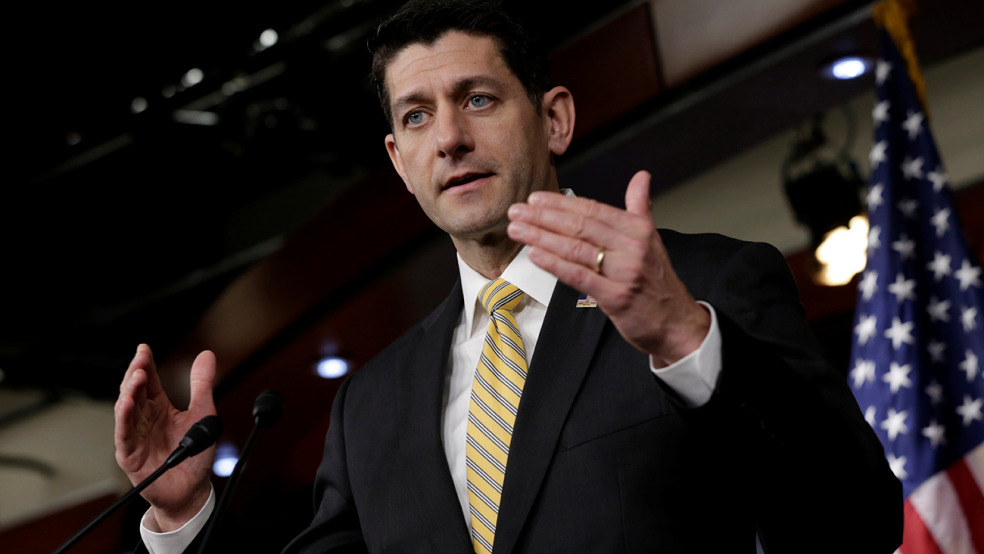With growing indications that the repeal and replace movement is in disarray in the House and Senate, House Speaker Paul Ryan (R-WI) and the chairmen of the Ways and Means and Energy and Commerce Committees intend to take up a plan on Wednesday, with an eye to forcing a vote by the full House in the coming weeks and sending it on to the Senate.
House Republicans are attempting to forge a hybrid budget resolution that keeps popular elements of Obamacare – including a ban on insurers discriminating against people with pre-existing conditions and allowing children to remain on their parents’ health insurance policies until age 26 – while scrapping the rest in favor of more conservative measures.
Related: How 3 GOP Senators Could Stop Obamacare Repeal in Its Tracks
House aides reportedly worked around the clock over the weekend to come up with the language of the complex legislation, with input from Ryan, Health and Human Services Secretary Tom Price, White House Budget Director Mick Mulvaney and other Trump advisers. AshLee Strong, a spokesperson for Ryan, declared that the Republicans were “now at the culmination of a years’ long promise to keep our promise to the American people” to repeal Obamacare.
Yet GOP leaders and the White House are caught between conflicting pressures. On the one hand, conservative lawmakers and advocacy groups are demanding the evisceration of every facet of the 2010 Affordable Care Act – including all mandates, premium subsidies and tax increases to finance the program. On the other hand, more moderate Republican lawmakers and governors, fearful of stripping millions of Americans of Obamacare and expanded Medicaid coverage, are urging a more cautious approach.
Although the latest House GOP plan has been kept under strict lock and key to give opponents less time to review and attack the approach, details began leaking out over the weekend suggesting that there are still three major disputes holding back agreement in the House.
1. Refundable tax credit. Ryan and Price have long favored a refundable tax credit that would be available to all Americans for use in purchasing health insurance in the private market. Unlike Obamacare, which provides premium subsidies based on income to low and moderate income people, the House GOP plan would make the tax credit available to all Americans – but based on age rather than income. In general, older, wealthier Americans would receive more in credits than younger, less wealthy people.
Related: Boehner ‘Started Laughing’ When Republicans Vowed to Replace Obamacare
But many conservative Republicans have opposed refundable tax credits, largely because people with lower incomes, who pay less in income taxes, would receive the full credit even if it exceeds their tax bill. Conservative critics including Sens., Rand Paul (R-KY) and Ted Cruz (R-TX), have dismissed the refundable tax credit as “Obamacare Lite” and want it stricken from any replacement plan.
For now the tax credit remains in the House GOP plan, but House Republicans are considering a change that would deny the credit to the wealthiest Americans, according to Politico. No decision has been reached yet on what the threshold should be.
2. Medicaid expansion. Currently, 31 states and the District of Columbia have signed up for an expanded Medicaid program under Obamacare in which the federal government pays about 90 percent of the bill for health care coverage to roughly 10 million low income adults who previously didn’t qualify for the program. Conservatives want to rescind the program and cut back on Medicaid spending, while many governors and lawmakers are demanding that the expanded program remain in place.
The latest House Republican plan would eliminate Medicaid expansion by 2020, according to Politico. States could continue to provide coverage if they choose, but they would receive far less federal assistance to do so. Moreover, Congress would also convert traditional Medicaid into a block grant or per capita payment to the states. Those steps taken together would almost certainly slash enrollments in Medicaid, which currently total about 70 million, and reduce the benefit level over time.
Rep. Greg Walden, chair of the Energy and Commerce Committee, told reporters over the weekend that the Republicans don’t intend to “pull the rug out from under” Medicaid beneficiaries, but that the program isn’t financially “sustainable” without major surgery.
Related: A First for Obamacare: Majority of Americans Now Support It
3. Taxes. Any GOP replacement plan will cost a lot of money, perhaps even more than Obamacare’s $1.2 trillion, 10-year price tag. So if the existing Obamacare taxes on individuals, businesses and the health care industry are stricken from the books, as conservatives demand, the Trump administration and GOP lawmakers will have to replace those lost revenues.
Republicans could claim billions of dollars in savings through budgetary maneuvers and dynamic scoring to offset some of the cost, at least on paper. But House GOP leaders are also pushing to cap the tax exclusion for employer-provided health insurance – the biggest loophole in the federal tax code. The House plan caps the tax exemption for employer-sponsored plans at the 90th percentile of premiums, meaning that the 10 percent most expensive health insurance plans would be taxed.





